A few years ago, I was on a night ferry from Bali to Lombok. Depending on the weather conditions, the trip takes around four and a half hours. For much of the first half, Bali fades from view. For most of the second half, Lombok approaches. In both segments, as with the landmasses, a phone signal first fades, then rises.
In the middle though, for a little under two hours, there is no signal at all—at least with my provider, Telkomsel.
It is a hole in the earth.
Change incoming. Photo: Stuart McDonald.
On this particular trip, the car ferry slowed and its horn groaned across the water. A jukung (a small traditional outrigger common in both Bali and Lombok) had laid nets in our path. The horn woke me and I wandered up to by the bow, to see what was going on. As we slowed, I noticed dolphins riding our bow waves.
The waters were calm, but the skies were stormy. Dawn was breaking and the light was early morning special. That light washed clear through the night, delivering an amazing clarity of both vision and mind. I took some snaps, trying without luck, to catch a dolphin breaking the surface.
The ferry came close to stationary as the fisher pulled his nets in. Then the engine rumbled and we continued on our way as the weather closed in, as it does, all too fast.
Get off my lawn. Photo: Stuart McDonald.
I walked back to the deck bench I’d been snoozing on and went to post a few of the photos on Instagram. It was only then I realised we were still in the dead zone. It would be another hour before a patchy signal came back and the emails started flowing in.
A hole in the earth. They’re becoming harder and harder to find in the ever more connected world we live in. I wasn’t seeking one, but when I realised there was no signal, my phone went into my pocket, and I watched the sun rise.
There are of course, some places that will always be holes in the earth. The literal ones are easiest. I’m sure, for example, Cindy Fan had no phone signal while underground in Vietnam’s En Cave for two days. Likewise if you’re of an outdoors inclination, you can trek into a national park—or climb a volcano. Most likely they’ll be no need to turn your phone on.
No signal, no worries. Indonesia’s Togean Islands. Photo: Stuart McDonald.
Indonesia’s Togean Islands was once another stalwart in this regard. On my most recent visit a couple of years ago though, how often I could get a signal surprised me. I’m sure it has improved more since. After all local people do live there and they like their phone coverage as much as the rest of us.
Making your own hole is easy enough—turn the damned thing off—or better still leave it at home. Few do so. A decade ago I could rattle off dozens of places one could go and not have a phone signal. Today, I could count them on one hand—or so I thought.
Late last year we had a weekend away here in Bali, to an eco lodge in the hills behind Tabanan. It is both a beautiful spot and an inspiring one. Inside the restaurant, there’s a few of photos on the wall—photos of what the landscape was once like. Sarinbuana Eco Lodge is set up on high on a ridge overlooking a valley, and when the owners moved in, the land was denuded. A palm here and there, but otherwise barren.
And here I am complaining about the WiFi. Photo: Stuart McDonald.
A couple of decades later, the site is like something out of Avatar. Having seen the photos, I asked the owner if they had started with a grand–plan of how to regenerate the site. She said no—it had sort of just happened. Fallen into place, piece by piece, plot by plot. They’d imported some New Zealand ferns, which stood metres tall, adding to the Jurassic vibe of the place.
Down the valley a little, they’d constructed a large wood and bamboo yoga sala. The forest surrounded the platform, and thanks to the slope, it felt like you were sitting in the canopy. Both mornings I sat there, listening to one half of the forest fade as the other half woke up.
One morning I took the kids on a walk down into the valley. At its base, a small three tier waterfall tumbled by, with a swimming hole at each level. While the water was icy, once you acclimatised, much like the dawn air on the ferry, you had an amazing clarity of mind. Or perhaps it was the iciness of the water cutting off blood circulation to the brain—a bit of each I reckon.
Plotting how to get Dad in the water. Photo: Stuart McDonald.
As they played in the pools and jumped off the ledges, I noticed a small bench, again not dissimilar to my ferry bench. It was hewn from stone, moss over much of it, I’d guess it had been a while since anyone had sat on it. I watched the kids play, while above us, drenched in morning birdsong, the forest towered.
There was no phone signal.
The lodge offered WiFi, but it only worked reliably in the restaurant. Our room meanwhile had a large sitting area, with a broad window overlooking the valley. When the weather cleared, we could see the Bukit Peninsula, miles away in South Bali.
Even I was tempted to do yoga. Photo: Stuart McDonald.
The location rides on the back of Gunung Batukaru, the second highest volcano on Bali. The peak is also home to Pura Luhur Batukaru, one of Bali’s nine kayangan jagat—directional temples. Dating back to the 11th century (when there was definitely no cell coverage) the temple helps protect Bali from evil spirits. In an island awash in temples, this is one of the most sacred.
As with the ferry, the weather was changeable. From our lounge we watched a storm roll down the slopes above us, the valley filling with torrential rain. Later in the day, we watched other storms blow in over the sea, enveloping the south.
Evil spirit weather. Photo: Stuart McDonald.
It was elemental and easy to see why Pura Luhur Batukaru stands where it does.
I remember griping to the owner about their on again off again WiFi. Frustrated at one stage I went for a walk trying to find a phone signal (without luck).
Thinking about it now, I was a fool. We’d stumbled upon a hole in the earth just an hour or so from home—and it took me until now to realise it.

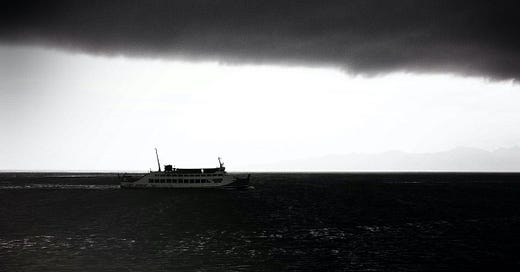





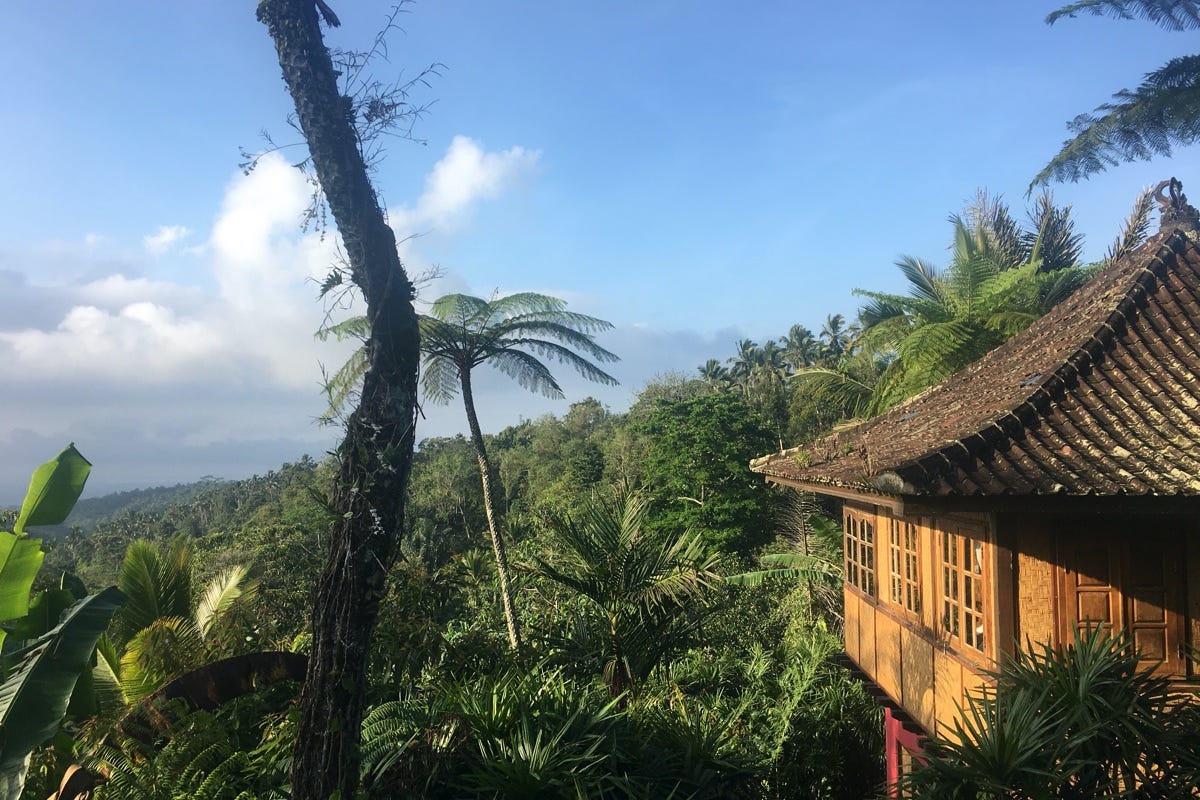


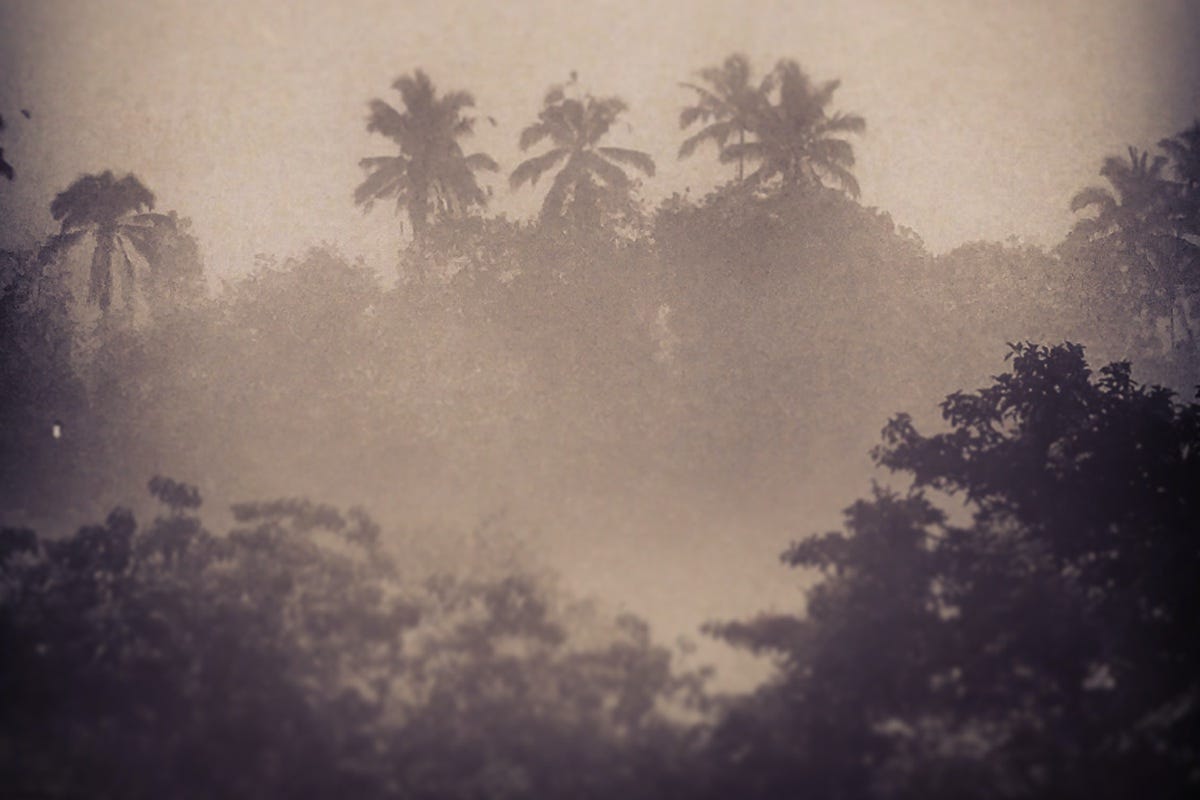

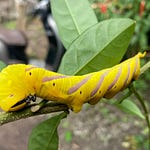
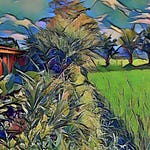

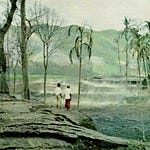
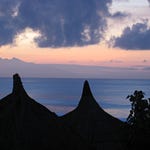
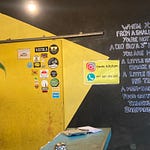
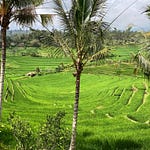

Share this post